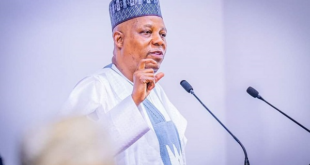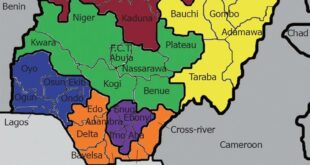The Nigerian government is in negotiations with the World Bank for a $1.5 billion budget support loan to finance its development projects and programmes, according to the Minister of Finance and Coordinating Minister for the Economy, Mr. Wale Edun.
At a press conference on the sidelines of the World Bank/International Monetary Fund Annual Meeting in Marrakech, Morocco, the Minister of Finance and Coordinating Minister for the Economy, Mr. Wale Edun, revealed that Nigeria is seeking a $1.5 billion loan from the World Bank to support its budget. He said the loan request would be tabled at the Federal Executive Council meeting on Monday and hoped that it would be approved soon.
He said the loan would have no interest rate, as Nigeria is eligible for both regular and concessional International Development Association (IDA) funding from the World Bank. He said the loan would assist Nigeria in closing its budget gap, which is expected to be 3.6 percent of GDP in 2023.
He said, “The World Bank is the foremost multilateral development bank for assisting developing countries to finance their own projects and programmes. It has free money through IDA. It has this for the poorer countries, and right now I think we qualify as one of the countries that can borrow from the regular window of World Bank funding, as well as some concessional IDA funding. That means that effectively, the interest rate will be zero. Therefore, there is no stigma attached to qualifying for World Bank funding to help finance development.”
Edun also stated that Nigeria was not asking for debt relief or restructuring like Zambia, which recently failed to pay its external debt obligations. He said Nigeria was still repaying its debt, which amounted to N87 trillion as of June 2023. He said Nigeria’s debt was sustainable but conceded that the interest payment was high.
He said: “Zambia is restructuring its debt under an IMF programme that is called the Common Framework, which is a framework within which countries that are creditors come together and agree on the basis of which to help a nation that cannot pay its debt. We thank God that Nigeria is not in that condition or situation now. We don’t need this type of financing at the moment.”
He assured Nigerians that the President Bola Tinubu administration would not engage in excessive borrowing, especially from the Central Bank of Nigeria, which has been criticised for monetizing the government’s deficit. He said the government would concentrate more on domestic resource mobilisation and private sector involvement to fund its budget.
He said, “One of the major focuses of the ministry now is to see how we can get back and sell ourselves to the private sector, to see how much we can build trust and confidence so that competitions and initiatives of the ministry can have the endorsement and huge support of the private sector.”
He added that the government would release a new Medium-Term Expenditure Framework later this month, which would reflect its priorities and projections for the next three years. He said the government would also implement the National Sports Industry Policy, which was approved by the previous administration but not fully implemented. He said the policy would provide opportunities for corporate and private sector involvement in sports development and transform sports from a mere recreation to a business.
Subscribe to the Advocate News letter and receive news updates daily in your inbox.
 Advocate.ng Latest news update on politics, entertainment, sport and more
Advocate.ng Latest news update on politics, entertainment, sport and more




